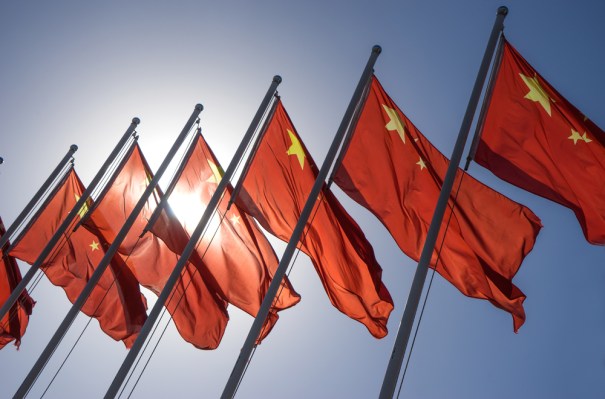Twitter has been blocked in China since around 2009. That seriously hampered any hopes that the U.S. firm — which is struggling to grow its userbase worldwide — had in China, but the service does still have a hardcore base of loyalists who use it in the country.
Previous estimates have pegged Twitter’s China-based following as being as high as 35.5 million users, but the actual number appears to be much lower. According to a source inside Twitter, who spoke to TechCrunch on the condition of anonymity, its service has around 10 million active users in China.
That number itself is an estimate, one that is used internally, because even Twitter isn’t fully sure. That’s because it is hugely challenging to tally up China-based users by virtue of them connecting to the service via VPN software which allows them to use an internet connection outside of China, thus bypassing the country’s web censorship system. So, a China-based user accessing Twitter on a VPN will show up as being located in the U.S., UK, Singapore or wherever else their VPN is set to.
“We do not comment on specific number of users in any country. Our consumer service is censored and blocked in mainland China today,” a spokesperson told TechCrunch via email.
Either way, the figure is small: 10 million represents a mere drop of Twitter’s 310 million total active users — it counts 65 million of those in the U.S., its largest single market, with the remaining 245 million overseas. It is also a tiny fraction of the 688 million internet users in the country, according to government data. That figure, taken from December 2015, means that, for the first time, over half of China’s population is now online.
Twitter has a growing business in China, anchored by an executive who controversially spent time in her early career working on military security for the government, but its userbase in China isn’t part of that. Local services like chat app WeChat, which contains social features and has multiple hundreds of millions of active users in China, and microblogging service Weibo are the dominant social media. Instead, Twitter makes money in China by offering Chinese companies and media a gateway to global audiences by advertising on its service. That’s exactly the strategy that Facebook employs, with both services proving to be popular advertising and distribution channels for China’s state-run media, which among the most lucrative clients.
“As a global platform, we are already engaged with advertisers, content providers and influencers across Greater China to help them reach audiences around the world. We are focusing on three Chinese business audiences that can leverage our global platform: continue to serve export advertisers, do more with publishers/creators, and reach out to developers,” Twitter added in a statement.
If it isn’t critical to its business, why is Twitter’s internal estimate for its China userbase worthy of note?
Well, it helps sketch out a figure for the number of people who use VPNs in China, an oft-influential section that includes journalists, activists, prominent business leaders and decision makers. It is hard to fully quantify this block of internet users, though, even with Twitter’s estimate. Not everyone using a VPN will use Twitter, but it is likely that a large portion of VPN and Twitter users overlap. Certainly you can’t use Twitter in China without a VPN.
In that respect, Twitter’s China estimate — while not mission-critical for Twitter’s business — gives a glimpse at the number of ‘global web consumers’ who leap over China’s Great Firewall of censorship to read and consume whatever they want on the internet.
“If there are 10 million Chinese on Twitter that is great news. Twitter is one of the last great bastions of relatively free speech. When was the last time 10 million Chinese could freely say what they feel, on any platform, without fear of reprisal?” Charlie Smith, one of the pseudonymous founders of anti-censorship group Great Fire, told TechCrunch via email.
Great Fire released a ranking index to give greater clarify around China-specific VPNs today, and Smith said he believes that “there are growing pockets of ordinary people who want to circumvent censorship so they can access whatever information they choose.”
“It’s fantastic that Twitter can provide us with an indication of how big this group might be,” the Great Fire founder added.
It is highly unlikely that Twitter will take the necessary steps that might get it unblocked in China — that would mean caving in to censorship demands and self-policing user content, as LinkedIn has done — while there’s already fierce competition in social media, so don’t expect that China-based user number to grow much any time soon.
